Bac Ha Market: The Cultural Heartbeat of Lao Cai
Nestled in the Lao Cai province, Bac Ha Market is a lighthouse of regional business, culture, and customs. Considered one of the most vibrant and real marketplaces in Vietnam, Bac Ha provides guests with an interesting window into the daily life of the ethnic minority in the area. Bac Ha Market offers a special encounter combining history, culture, and active trading. Let MOTOGO Tours explore it.
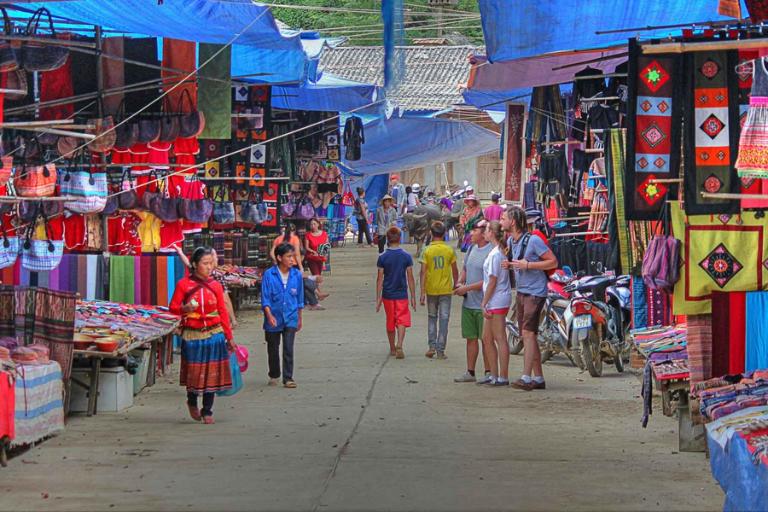
Introduction to Bac Ha Market
Location and Accessibility
About two to three hours’ drive from Sapa, a well-known tourist destination in northwest Vietnam, Bac Ha Market is right in the middle of Lao Cai Province. Not only a shopping destination but also a breathtaking experience since the market is placed in a magnificent scene surrounded by tall mountains and rich valleys. By car or bus, Bac Ha is readily reachable; many visitors mix a market visit with a tour of the nearby areas.
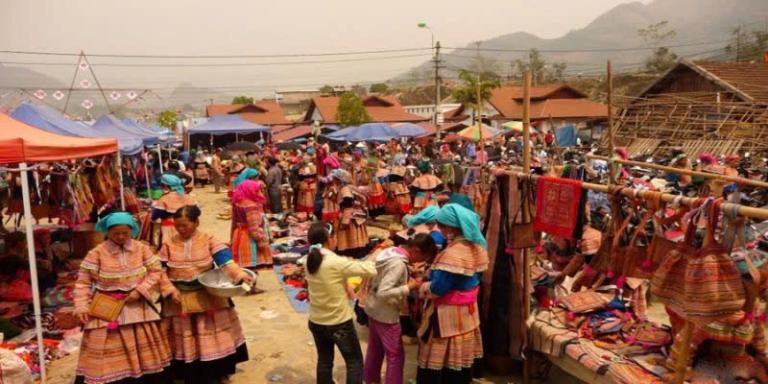
Historical Significance
For ages, ethnic minorities in the area have centered in Bac Ha Market. Local people from many tribes, including the H’mong, Tay, and Dao, gather at this trade station to purchase and sell items. The local economy depends much on the market, which also helps to retain barter and trade customs.
>>> Explore the Markets in Sapa: A Cultural Journey Through Vietnam’s Mountainous Region
What Makes Bac Ha Market Unique?
Traditional Ethnic Groups
The great variety of ethnic groups gathered in Bac Ha Market is among its most fascinating features. Every tribe adds its unique habits, attire, and way of life, therefore producing a diverse cultural mosaic. The market is particularly well-known for its energetic H’mong and Tay communities, who bring handcrafted products, textiles, and jewelry to sell along with their vivid traditional costumes.
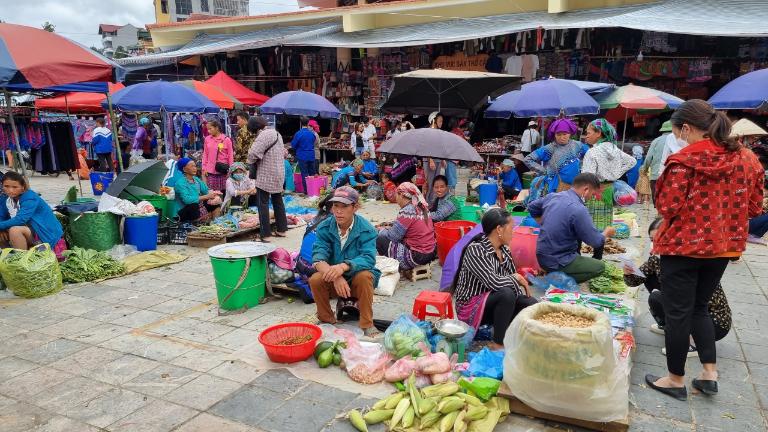
Vibrant Market Activities
Bac Ha Market is a vibrant cultural event rather than only somewhere to buy. Early in the morning, the market explodes with activity as residents haggle over anything from fresh vegetables and fruits to cattle and herbal remedies. Laughing, negotiating, and the odd musical performance abound in the air. This trip lets you observe how trade and culture entwine in Vietnam’s rural heartland.
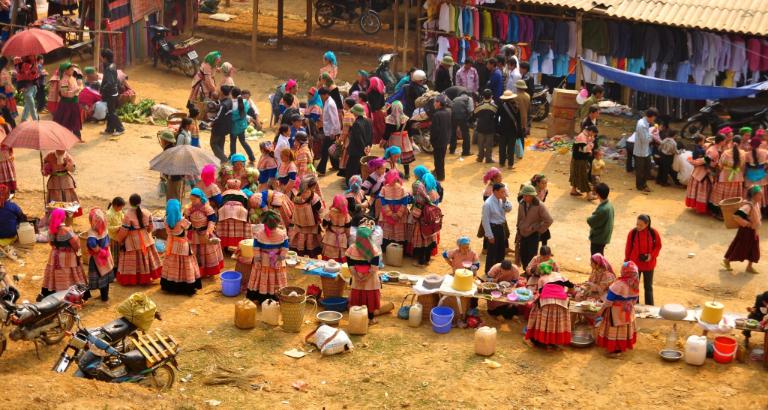
Best Time to Visit Bac Ha Market
While Bac Ha Market is open year-round, the best time to visit is during the harvest seasons, typically in spring and autumn, when the market is particularly full of fresh produce. The cooler months from September to November are also great, as the weather is perfect for exploring the region’s stunning landscapes.
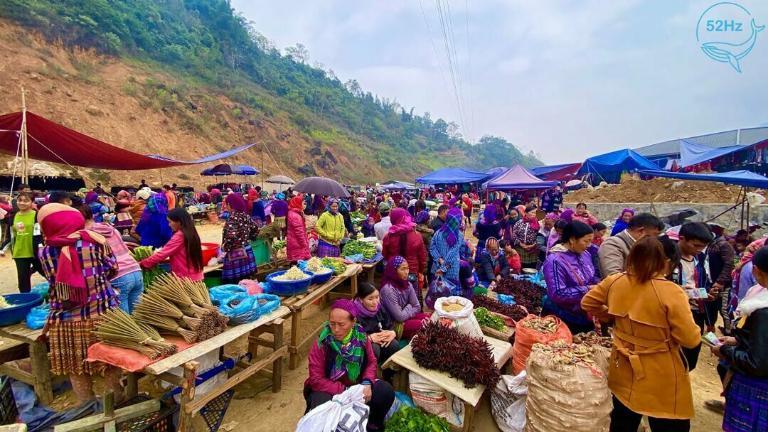
Bac Ha Market operates every Sunday, drawing visitors from all over the region. It’s on Sundays that the market truly comes to life, with ethnic traders traveling from remote villages to set up their stalls. Arriving early is essential to catch the full spectrum of the market’s energy and activity.
How to Reach Bac Ha Market
Traveling from Hanoi
From Hanoi, Bac Ha is almost nine hours’ bus ride away. Alternatively, you could ride a train to Lao Cai then drive or ride a motorbike to Bac Ha. Though the trip is long, the picturesque drive via mountains and valleys makes it well worth it. For those want a hassle-free vacation, many travel firms in Hanoi provide guided visits to Bac Ha.
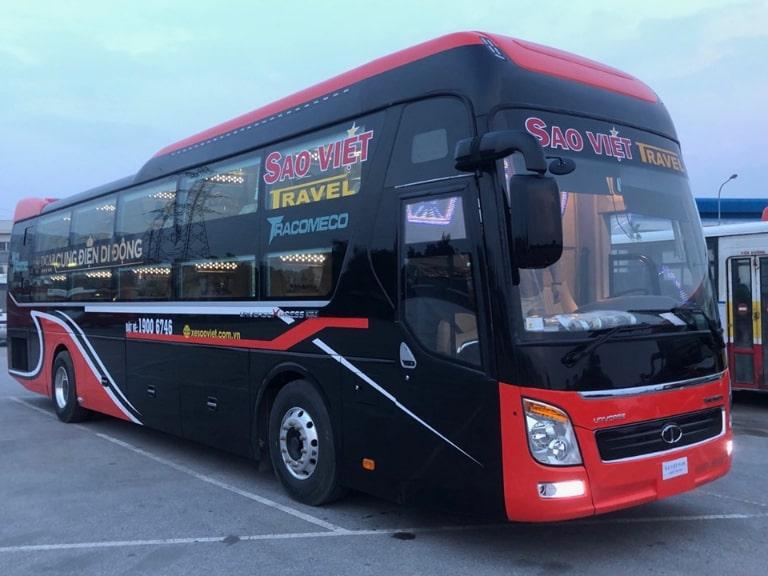
Public Transport and Tours
For those who prefer public transport, buses and minivans run regularly between Hanoi and Bac Ha. However, traveling by private car or tour is a great way to enjoy the stunning landscape and get insider knowledge about the market and its culture.
What to See and Do at Bac Ha Market
Shop for Handcrafted Brocade Clothing and Unique Souvenirs
A veritable gold mine of objects reflecting the active daily life of the ethnic communities in the area is Bac Ha Market. From tools for farming like hoes and shovels to animals, the market contains everything. Still, the range of exquisite brocade goods is clearly what draws attention. Showcasing many street vendors, the vibrant clothing and traditional costumes worn by the H’mong and Red Dao ladies will enthrall visitors.
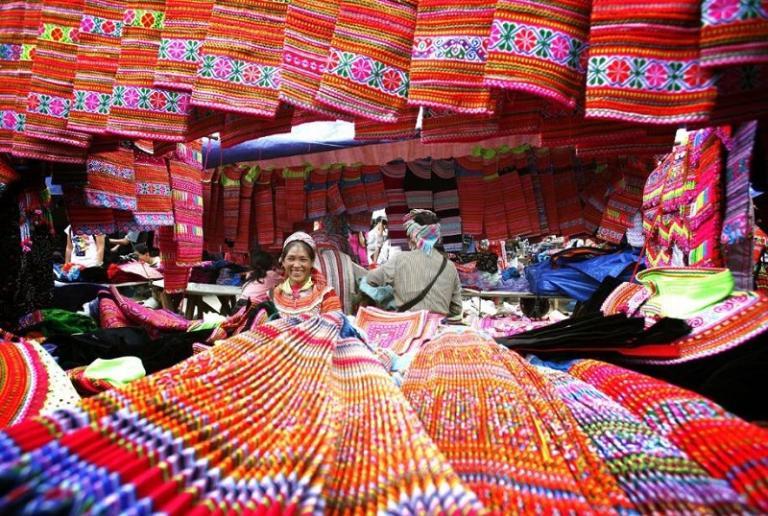
For those seeking well made goods including tote bags, scarves, wallets, and more, the market is a wonderland. You will find many of choices whether your intended purchase is a lovely piece of embroidery for yourself or as a considerate gift for a loved one. Not sure the ethnic group a given work fits? Don’t hesitate to ask the pleasant sellers specifics.
Explore the Livestock Market
Though somewhat more remote, the cattle section of Bac Ha Market is no less fascinating from its hilltop location. Buyers and sellers convene in this space to trade animals. Pigs, cows, buffaloes, chickens, dogs, and horses among other animals are sold here.
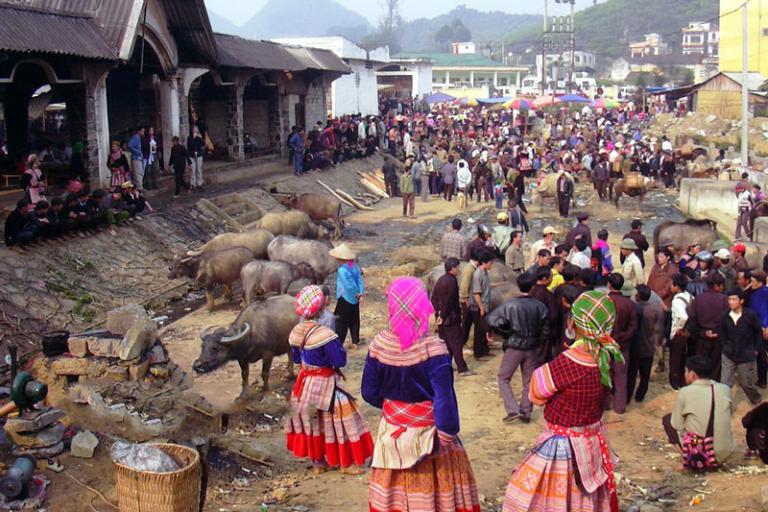
Particularly the buffalo market is dominated by men traders and a hive with enough area to accommodate hundreds of customers. Close by will also locate marketplaces for chickens and dogs, thereby offering a complete range of livestock trading.
Indulge in the Flavors of Northwestern Cuisine
Without trying some of the mouthwatering street cuisine from the area, no trip to Bac Ha Market is whole. Usually made from horse meat, Thang Co is a must-try meal from Mongolia; buffalo or pork are also common nowadays. There will be lots of chances to taste this local delicacy thanks to more than 20 booths offering it.
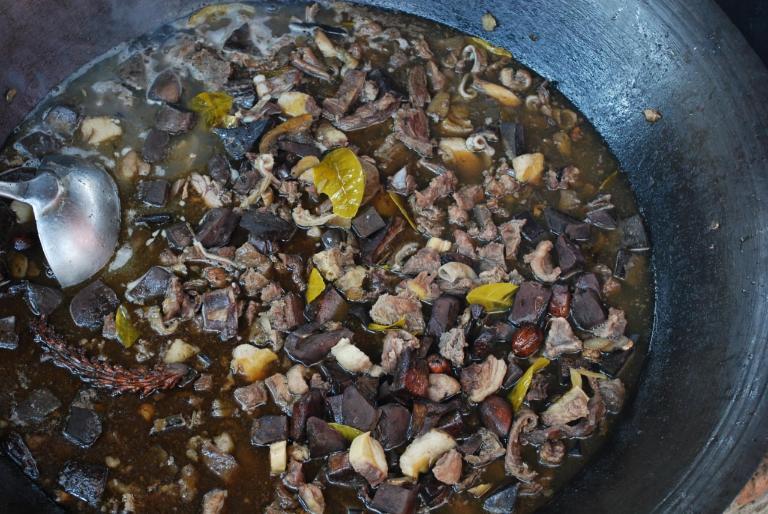
As you savor Thang Co., make sure to wash it down with a glass of Corn Wine, a much-liked beverage among the H’Mong and Dao people. Known locally as Ban Pho Corn Wine or Bac Ha Corn Wine, this beverage has a unique scent and a pleasant, not too strong taste that complements the cuisine exactly.
Experience the Local Festivals and Vibrant Atmosphere
Bac Ha Market comes alive with fascinating events honoring the customs of the ethnic groups living in the area all year long. These celebrations of culture also mark times when residents gather to wish for plenty of harvests, good weather, and economic growth. Visitors can witness the residents in their best traditional clothing during these events, which are vibrant with music, dance, and alcohol consumption.
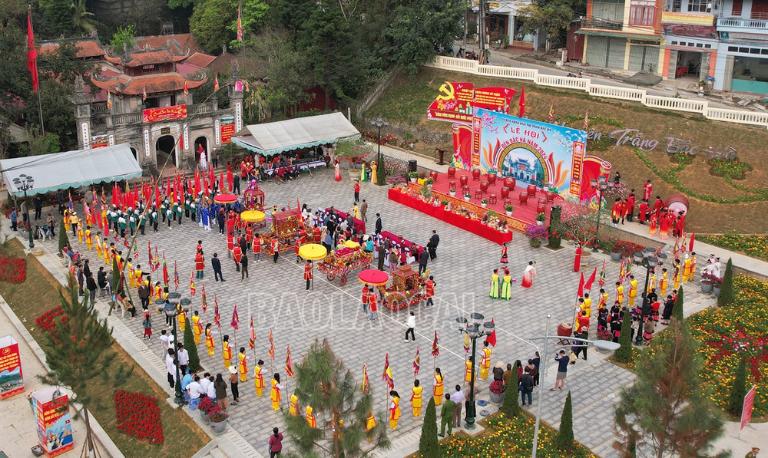
Among the important celebrations to keep on eye in Bac Ha are:
- Say San Festival: Held from the 2nd to the 6th of January according to the lunar calendar.
- Ruoc Dat Ruoc Nuoc Festival: Takes place on the 15th of January.
- Horse Racing Festival: Typically held in early June.
- Bac Ha Temple Festival: Occurs on the 7th of July.
Bac Ha Market’s Role in the Local Economy
Trading Traditions
The market is not just a location for business but also a fundamental component of the social fabric for the residents of Bac Ha and the environs. The market serves as a social gathering where people congregate, trade items, and pass along stories. Given that livestock trading is sometimes used as bartering for other commodities or services, it is especially important. Unlike other metropolitan marketplaces, this special legacy offers Bac Ha Market historical and cultural value.
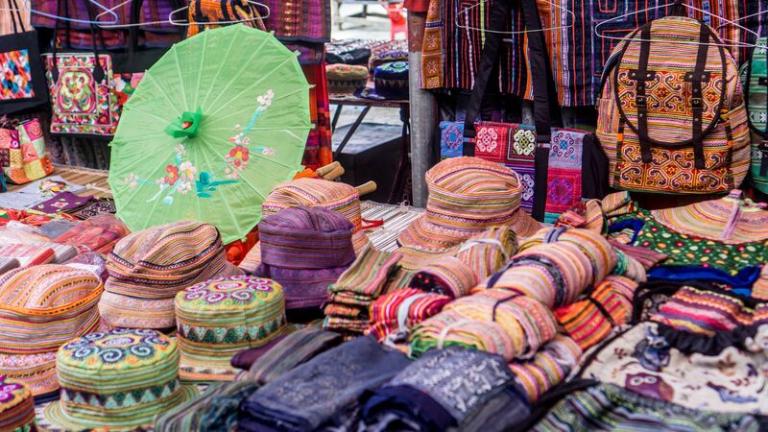
The Impact on Surrounding Villages
By linking far-off communities with bigger trade networks, Bac Ha Market also significantly boosts the local economy. While traders from different parts of Vietnam come to buy handcrafted items or crops, villagers who make them bring them to the market for sale. This trade supports the continuation of traditional crafts and helps the whole region’s economy to be sustained.
Tips for Visiting Bac Ha Market
What to Wear
Bac Ha is in the mountains, hence the temperature is erratic. Particularly in the colder months, it’s advisable to pack layers of clothes and wear cozy shoes for strolling. Remember to include a hat and sunscreen to guard from the sun.
Photography Etiquette
While Bac Ha Market is a great place for photos, it’s essential to be respectful of the locals. Always ask permission before taking close-up photos of people, especially if you’re photographing their traditional clothing or activities. This small gesture shows respect for the culture and creates a more authentic interaction.
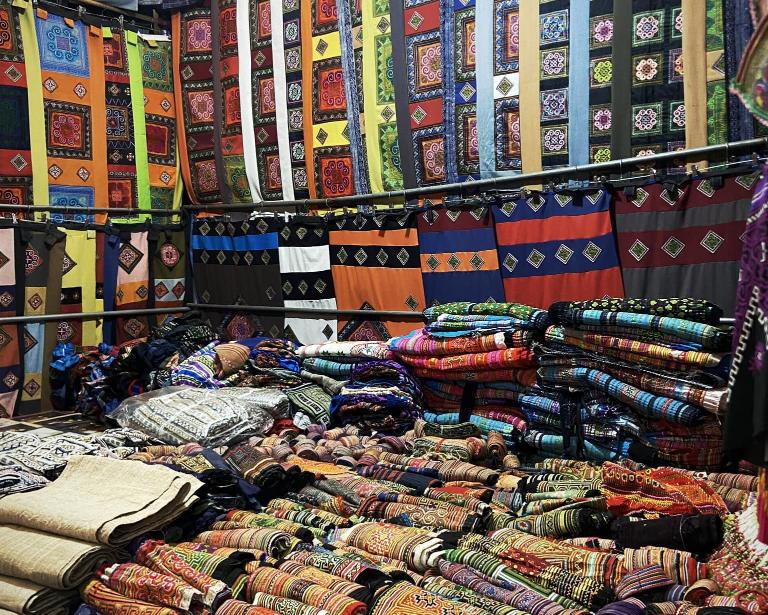
Bac Ha Market is more than just a shopping destination—it’s a living testament to the culture and traditions of Northern Vietnam’s ethnic communities. From the vibrant colors of the local costumes to the lively market activities and delicious food, Bac Ha is a place that offers a truly unique cultural experience.
Related Posts:












Be the first to comment!